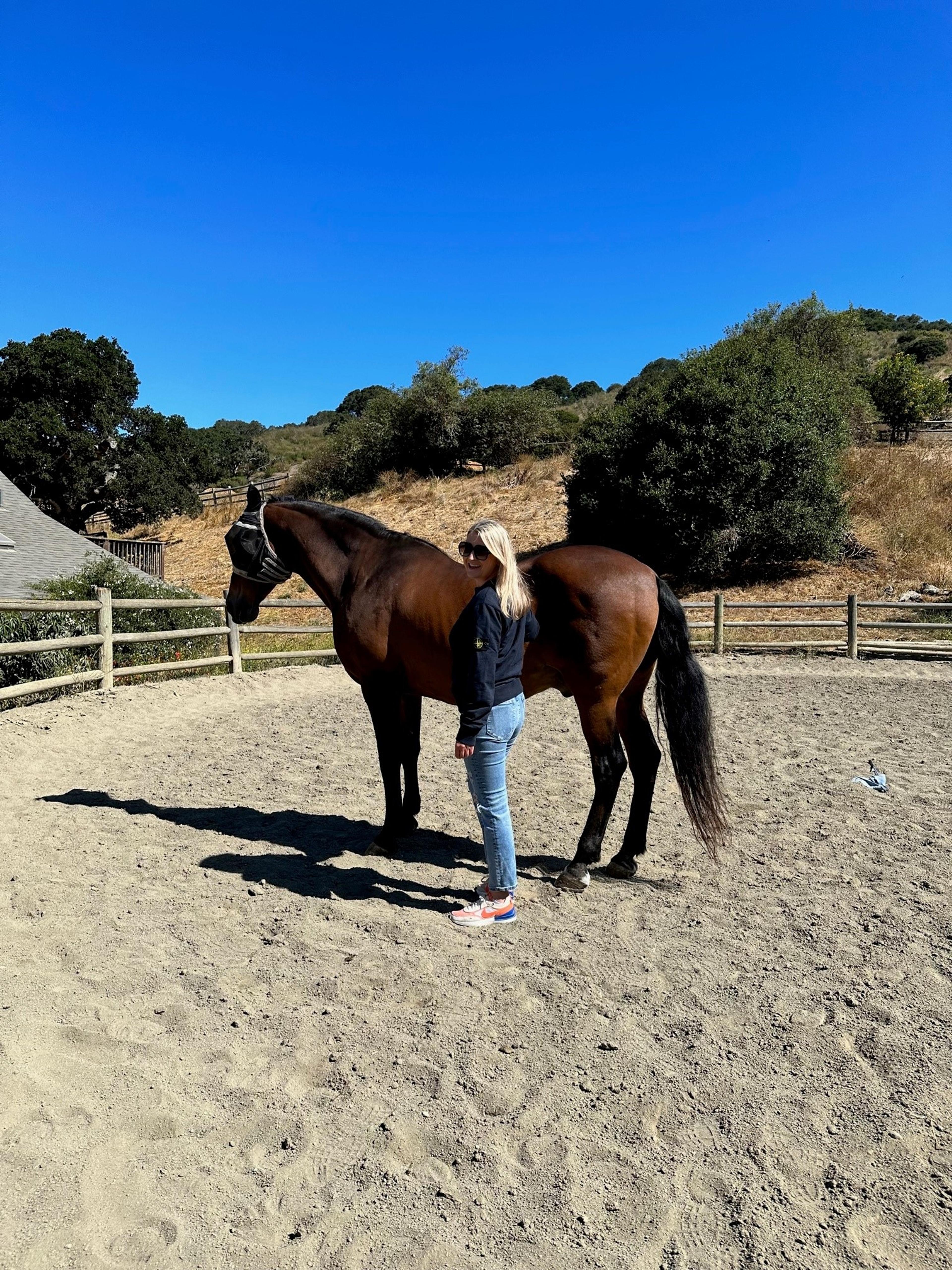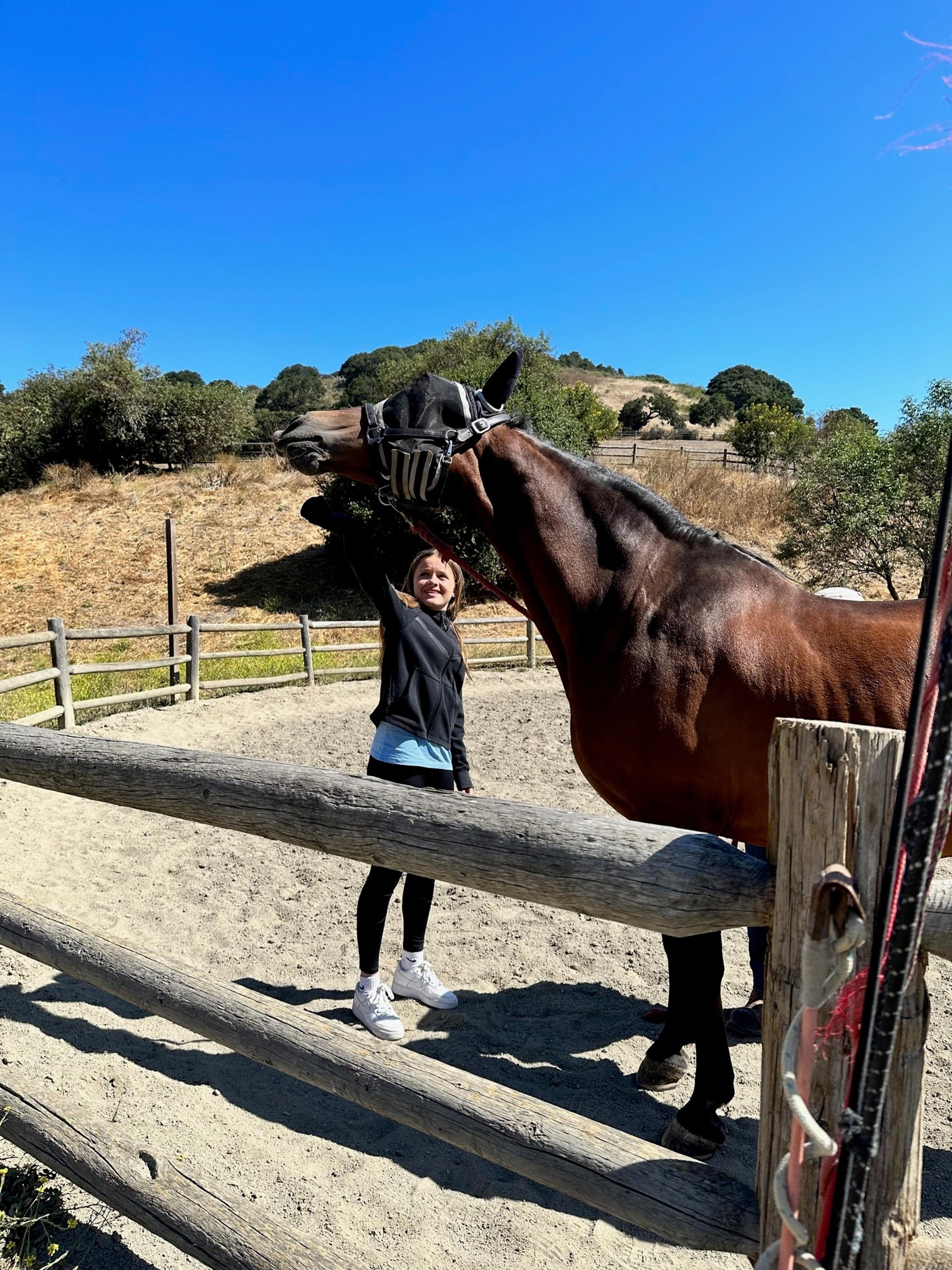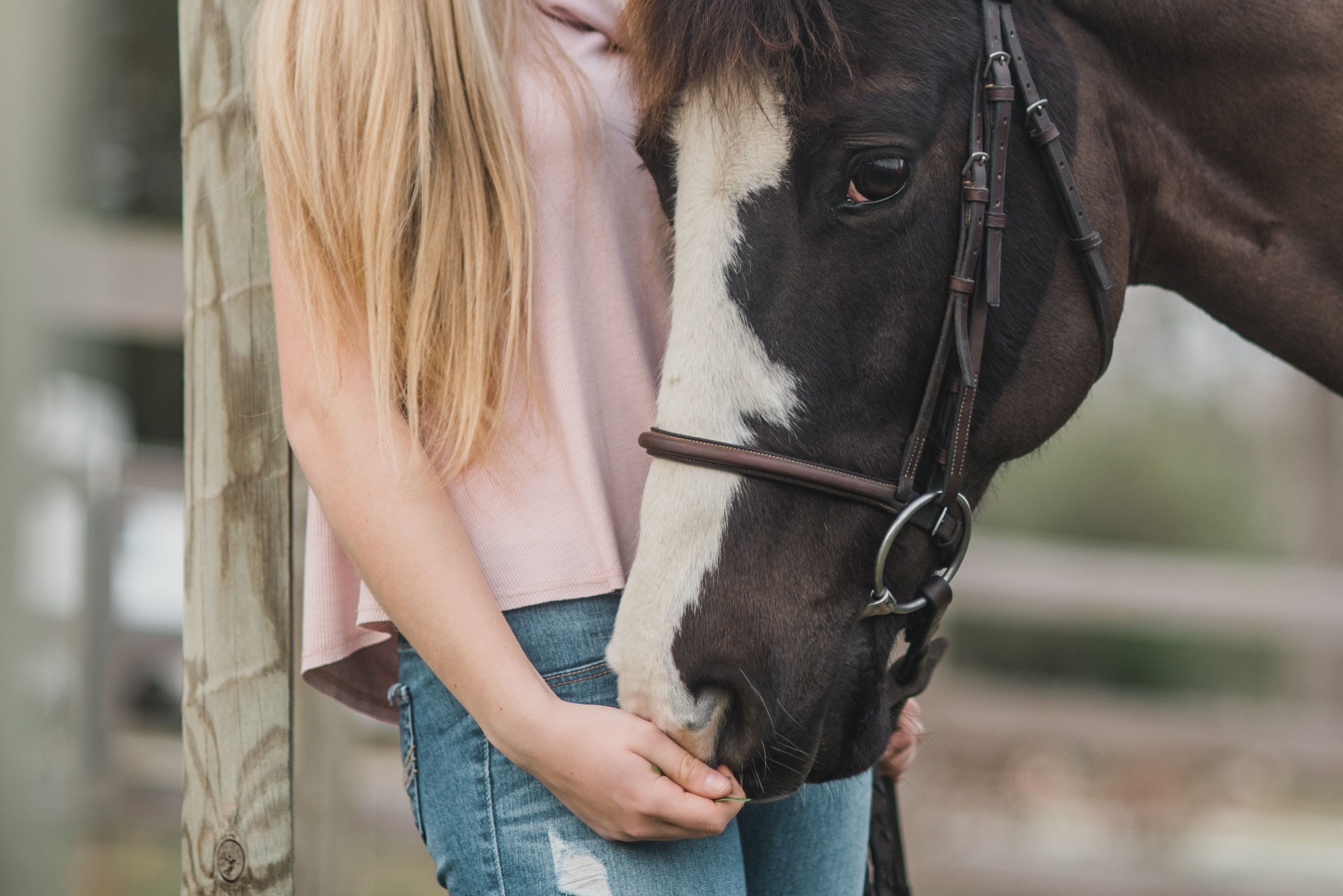I was the only girl in my class at school that didn’t have a pony on their Christmas list. I’ve a slight fear of horses, actually, scrap that, I’m terrified of them. They are big, powerful and can be unpredictable, which is why I’ve never been one for horse riding. I’ve obviously passed this non-horsey love on to my daughter, Eden, she feels the same, so when we both signed up for equine therapy on a recent trip to California a few family members laughed. “You two, on a horse, I just can’t see it.” sniggered my husband. That only spurred us on more and on a balmy early Monday morning in Monterey County we pulled up at The Equine Healing Collaborative, a non-profit organisation that are squashing the stigma associated with therapy by making it accessible for their clients. Founder and Executive Director, Jen Fenton and her team of 43 clinicians and 37 horses are on a mission to provide a path to recovery, self-discovery, and personal growth through the use of equine assisted psychotherapy.
Equine assisted psychotherapy involves counselling with a mental health professional and time riding or caring for a horse. The horse is considered a co-therapist. Forming a relationship with an animal that weighs 1,000 pounds or more may be intimidating, but the required vulnerability and trust is part of the process.

Equine therapy isn’t new, it’s been around for a while but with us in the midst of a global mental health crisis it’s booming, Jen tells me, “Post Covid there’s been a huge uptake in treatment for anxiety and depressive related disorders, especially in young people.”
As soon as I met Jen I felt relaxed and at ease. She has best friend vibes, easy to talk to, the kind of woman you want to share a glass of wine with and download all your secrets to. A trained mental health therapist and previously a hostage negotiator, she’s got an aura that’s calming and reassuring. Originally set up in 2015, she coupled her job as a therapist with her love of horses and took therapy from the couch to the barn. Jen tells me, “I’ve seen people get more out of one session with the horse than half a dozen on the couch. Taking people out of a clinical environment helps them relax and they let their guard down which allows them to get more out of it.”

The team at The Equine Healing Collaborative, work with their clients on the same issues and challenges you might go see a regular therapist for such as past trauma, relationships, anxiety, or depression. The horse acts as a co-therapist, helping to relax clients, build trust and connection. Jen explains, “Horses are herd animals, their survival is tied to their ability to get along with the rest of the herd so they easily connect with humans.”
Every horse has its own story, all of them are rescues and the clinicians work with each one before they start working with clients, assessing how they respond to situations and stress. The horses are profiled then paired with the client based on the support they require. None of the horses are ridden, instead the therapist might run a couple of exercises that are focused on supporting the client.

When we visited, we got to meet Hermoso, a big chestnut friendly stallion. We worked with Jen and Hermoso on a couple of exercises exploring vulnerability and confidence. Jen tells me “The horses shine a light on how we are feeling, unearthing anything we might be trying to avoid. ”As part of my session with Hermoso I had to close my eyes and let the horse come to me. I immediately felt vulnerable and intimidated, Jen coached me from the side, asking me how I felt while guiding me. Following this Jen then asked me to draw a circle in the sand and think about something or someone I loved and would do anything to protect. I had to then imagine this person or thing was in the circle with me and not let Hermoso into the circle. Hermoso pushed me and my boundaries. It wasn’t easy keeping this huge horse out of my circle and I had to stand strong and confident while inside I was having a wobble. Jen told me Hermoso could pick up on how I was feeling so I had to push through it and show him I was in charge. I eventually kept him out the circle and he got the message he wasn’t getting in. Afterwards I was chatting to Jen and she said, “I think you might be operating in your comfort zone, you need to take more risks Anji.” Based on 45 minutes with the horse, my behaviours and interactions, Jen managed to pick up on this and she was right, I have been playing it safe with a few things. I left thinking about what she had said and how I might make some changes. Eden also come away with some food for thought, telling me, “I came here unconvinced but with an open mind and having spent some time with Jen and Hermoso, I can see how it would benefit not just your mental health but your mindset. It’s made me think more about self-belief and the fact that I can do anything.”
The organisations operating funds are generated by billing insurance companies and through patients paying a sliding scale of fees. Though Jen points out that the process and red tape private insurers have makes it hard for people to get mental health support. 86% of their clients are from low socio-economic backgrounds so they don’t always get reimbursed for everyone which is why they rely heavily on fundraising. She tells me “It’s frustrating, mental health support should be accessible to everyone, but the truth is if you don’t have the finances it is harder which is why we often waiver fees.” She’s also training other clinicians in equine assisted therapy as it’s “expensive and exclusive” and her goal is to bring equine therapy to as many people as possible. I have no doubt she will. We leave Jen and Hermoso with a spring in our step and a sense of achievement.
The Equine Healing Collaborative is a not-for-profit organisation that offers services based on a sliding scale fee. House of Coco travelled to Monterey County courtesy of See Monterey.


Comments are closed.